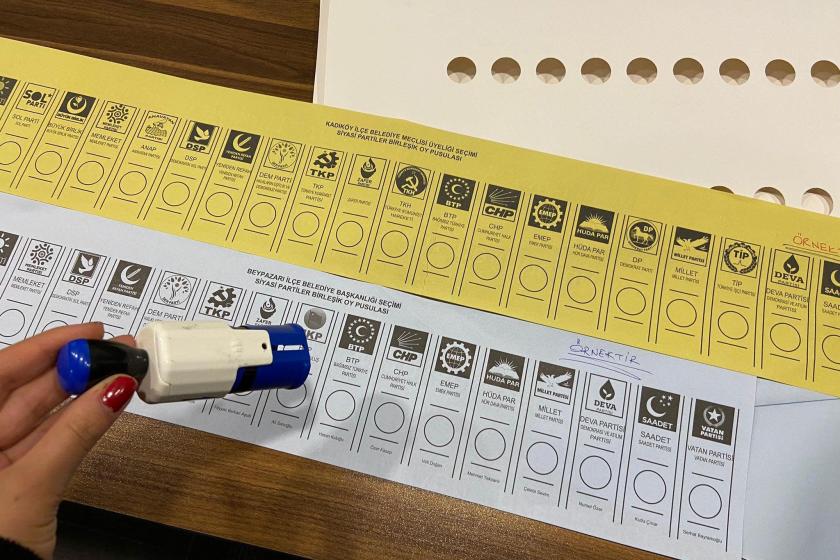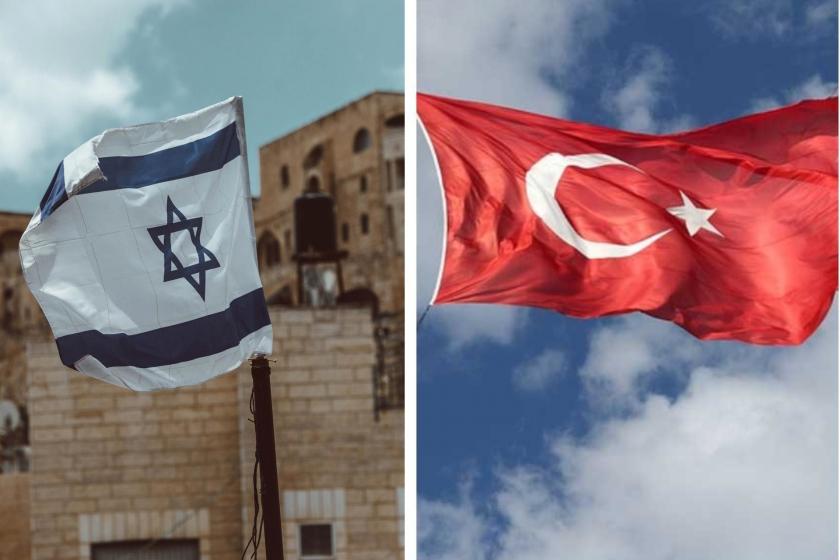The hearing of the trial into the Gezi Park protests pending which businessman Osman Kavala is in detention and in which sixteen people, six of them on the run, are being prosecuted with “aggravated life sentences” sought, was held at Silivri Prison Complex. The continuation of Osman Kavala’s detention was ordered in the trial. The next hearing will be held on 8-9 October. The lawyers presenting defences at the hearing described the indictment as a fallback and fabrication. The lawyers said, “A trial is being held with a witch-hunt mentality. The indictment has once more entered history following six years having been reheated and cloaked with validity.”
The hearing of the trial into the Gezi Park protests pending which businessman Osman Kavala is in detention in which sixteen people, six of them on the run, are being prosecuted, began to be held before Istanbul Serious Crime Court No 30. The hearing was held in the courtroom opposite the Silivri Prison Complex. There were 300 spectators and nearly 70 gendarmerie officers in the courtroom. Before the hearing, hundreds of people, including Peoples’ Democracy Party (HDP) and Republican People’s Party (CHP) MPs, human rights advocates, arts world people, intellectuals, journalists and foreign delegations congregated in front of Silivri Prison in the early hours. Those coming to observe the hearing passed through search points. With the large number of lawyers taking their places at the hearing, those on trial also began to be admitted to the hearing.
KAVALA APPLAUDED
Appearing at the hearing were detained Osman Kavala and those on pretrial release, Can Atalay, Yiğit Aksakoğlu, Çiğdem Mater, Hakan Altınay, Mine Özerden, Yiğit Ali Ekmekçi, Mücella Yapıcı and Tayfun Kahraman. Kavala was applauded by spectators as he was led into the courtroom. The hearing commenced with the lawyers’ defences. The presiding judge indicated that he wanted to complete the hearing, slated for two days, that day.
ATTORNEY FİKRET İLKİZ SLAMS INDICTMENT
Mücella Yapıcı, Tayfun Kahraman and Can Atalay’s attorney Fikret İlkiz took the floor at the hearing. İlkiz said, “We weren’t even able to understand the language of the indictment. But we understood its stance, philosophy and logic very well.” Prominent points from İlkiz’s defence were as follows:
It says in the ruling dated 11.6.2011 of Penal Chamber Four of the Court of Cassation that “the indictment must be detailed, the defendant must understand what he or she is charged with and his or her right of defence must not be restricted.” In short, this indictment falls foul of the ruling of 20.11.2007 of the Joint Civil Chambers of the Court of Cassation. You may deem this to be a past ruling. This ruling is valid for us. In that case, it is all the more valid for you. According to the Judges and Prosecutors declaration you made the promise “Is respectful of human rights, protects human honour and acts equally towards all.” You appear as you are in the stance of the indictment. I recommend that you question the 657-page indictment as follows: Did you proceed from the evidence to the defendant? Did you establish a link of causality between acts and the law in your assessment.? You did not, and this is why this indictment was framed as it was.
“INDICTMENT THAT DOES NOT WARRANT MERIT”
Asking, “The Gezi events have taken their place in history. Was there a need for a juridical procedure to enable us to establish this? Or was there a need for a court case?” İlkiz declared, “Because talk of abuse being forbidden is deemed to be an affront to the values of the European Convention on Human Rights. Do you indeed have the right to abuse rights in the face of such a historic event? We don’t think so. Finally, your indictment from our standpoint is an indictment that does not warrant merit.” Following İlkiz, Can Atalay and Tayfun Kahraman’s attorney Özgür Karaduman addressed the court.
GOVERNMENT SHOULD SEEK IMPERIAL CONNECTIONS IN ITSELF
Karaduman said, “With there being discussion of such a coup as 15 July of the Fethullahist gang that at one time formed a political alliance with the state, we are being tried under an indictment that the Fethullahist gang compiled and cloaked with validity. If there is a struggle against this gang, validity must not be attached to this indictment.” Continuing, “We encounter a trial conducted with the logic of the McCarthy period witch hunt,” Karaduman declared, “There has been no evidentiary substantiation of the relationship between the Gezi resistance and those organizing Gezi but a connection with imperialist powers has been spoken of. If anyone is looking for imperial connections in this country, the government should start by looking at itself. The indictment is a fallback indictment, it is a plot indictment, it is the blocking of the political opposition’s sui generis modes of struggle. There is otherwise no answer as to why such a trial has been brought following six years.”
ULUDAĞ DICTIONARY ENTRY IS BASIC CRUX
Continuing his defence as follows: “People carrying out their profession in Turkey are being told, ‘If you don’t stick within the political boundaries the ruling party charts you’ll be prosecuted even if five years or ten years pass and you’ll be reprosecuted and reprosecuted,” Karaduman contended, “The launching of a fallback investigation into Ali Babacan and the producing of a fallback indictment against Meral Akşener are indicative of new Turkey’s legal order. We will see what consequences ensue for the future from retaining the precise framework of the Fethullahist gang’s indictment and turning the Uludağ Dictionary entry into the basic crux of the indictment. Citizens coming together and objecting at a place where the political rulership interferes with women’s abortion rights and dining in the street cannot be put on trial. This is called the empire of fear.”
“INDICTMENT IS INTERNALLY CONTRADICTORY AS TO THE CHARGES IS LAYS”
The trial resumed following the taking of a recess.
Attorney Evren İşler said while submitting her defence, “Gezi was the exercising of a constitutional and democratic right. Many rights and demands were voiced. It is the right of assembly and expression. Alongside this, the people have the right of objection and the right of resistance, too. This is what these people’s acts amount to. The mere acceptance of this indictment has to do with preventing these rights.” İşler continued, “The indictment is internally contradictory as to the charges it lays and in addition to all its errors it further betrays a huge lack of seriousness in its application of legal terminology. A document does not become an indictment by placing the heading ‘indictment’ on it. We are reading the Republic prosecutor’s views in indictment form. We do not see evidence being related to a perpetrator anywhere in the indictment, either. The words you have used while making pure inferences such as, ‘it was ascertained, shown, opined; it was notable; it was seen’ are repeated in the indictment. This is not the full extent of the linguistic sickness in the indictment, either. The defendants are also accused of acting impudently. The prosecutor is capable of conceiving of a religious term like ‘practicing polytheism’ with regard to the constitutional order.”
Gökçe Yılmaz’s attorney Bahri Belen then said, “Were there a need to give an example of antagonism in logical and philosophical terms, this indictment might be an example.”
KAVALA: DISCONNECT BETWEEN SUSPICION AND EVIDENCE IS PALPABLE
Detained businessman Osman Kavala, making his defence in the Gezi trial, said, “I was not asked any question about Soros, the Open Society Foundation, Taksim Solidarity or Otpor that constitute the basic components of the fabrication of the indictment. The photographs adduced in evidence against me are my photographs taken at a photograph exhibition and in Gezi Park. I was not interrogated by the prosecutor after I was arrested. The drafting of the indictment sixteen months following my arrest is indicative of the struggle to seek hard evidence. Following my detention, baseless reports were published that I had 93.5 hours of recorded phone calls with Henry Barkey. But we have not had a single call. There has been no hard evidence in relation to the charges following detention, either. The disconnect between suspicion and evidence has become even more palpable. I thus apply for acquittal.”
One of Kavala’s lawyers, Köksal Bayraktar, for his part said, “My client has been obliged to live deprived of his liberty for 21 months, that is 630 days. The size of the figures demonstrates the erroneousness of the legal procedure being conducted.”
CONTINUATION OF KAVALA’S DETENTION ORDERED
In his interim recommendation, the prosecutor sought the dismissal of the applications for the taking of the statements through judicial assistance of the defendants against whom arrest warrants are outstanding, the awaiting of execution of the arrest warrants and the ordering of the continuation of Osman Kavala’s detention.
Announcing their decision, the presiding judge declared that the continuation of the sole detained defendant Osman Kavala had been ordered by majority vote. As to the arrest warrants against Can Dündar, Mehmet Ali Alabora, Pınar Öğün, Meltem Arıkan, Gökçe Yılmaz and Hanzade Hikmet Germiyanoğlu, their continuation was ordered. Adjournment was made to the next hearing on 8-9 October.
THOSE ON TRIAL
The following sixteen figures number as “suspects” in the 657-page indictment:
- Osman Kavala
- Ali Hakan Altınay
- Ayşe Mücella Yapıcı
- Ayşe Pınar Alabora
- Can Dündar
- Çiğdem Mater Utku
- Gökçe Yılmaz
- Handan Meltem Arıkan
- Hanzade Hikmet Germiyanoğlu
- İnanç Ekmekci
- Memet Ali Alabora
- Mine Özerden
- Şerafettin Can Atalay
- Tayfun Kahraman
- Yiğit Aksakoğlu
- Yiğit Ali Ekmekçi
Of these figures, Osman Kavala is in pretrial detention. Yiğit Aksakoğlu walked to freedom at the previous hearing.
As to Memet Ali Alabora, Ayşe Pınar Alabora, Can Dündar, Gökçe Yılmaz, Handan Meltem Arıkan and Hanzade Hikmet Germiyanoğlu, arrest warrants are outstanding against them.
Millions of people participated in the protests that started in the final days of May 2013 to prevent the mall project in Gezi Part and halt the cutting down of trees and spread throughout the country to the accompaniment of police violence. Mehmet Ayvalıtaş, Abdullah Cömert, Ethem Sarısülük, Ali İsmail Korkmaz, Berkin Elvan, Ahmet Atakan and, in the fortified police station protest in Lice, Medeni Yıldırım lost their lives during the Gezi Park actions. (EVRENSEL DAILY)
(Translated by Tim DRAYTON)
WHAT HAPPENED DURING THE GEZI PROTESTS?
A wave of demonstrations and civil unrest in Turkey began on 28 May 2013, initially to contest the urban development plan for Istanbul's Taksim Gezi Park. The protests were sparked by outrage at the violent eviction of a sit-in at the park protesting the plan. Subsequently, supporting protests and strikes took place across Turkey, protesting a wide range of concerns at the core of which were issues of freedom of the press, of expression, assembly, and the government's encroachment on Turkey's secularism.
3.5 million people are estimated to have taken an active part in almost 5,000 demonstrations across Turkey connected with the original Gezi Park protest. 11 people were killed and more than 8,000 were injured.
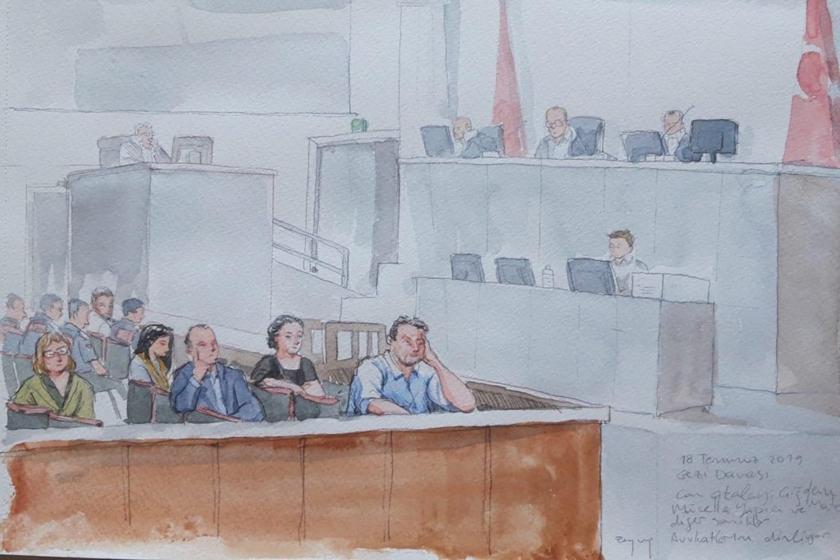


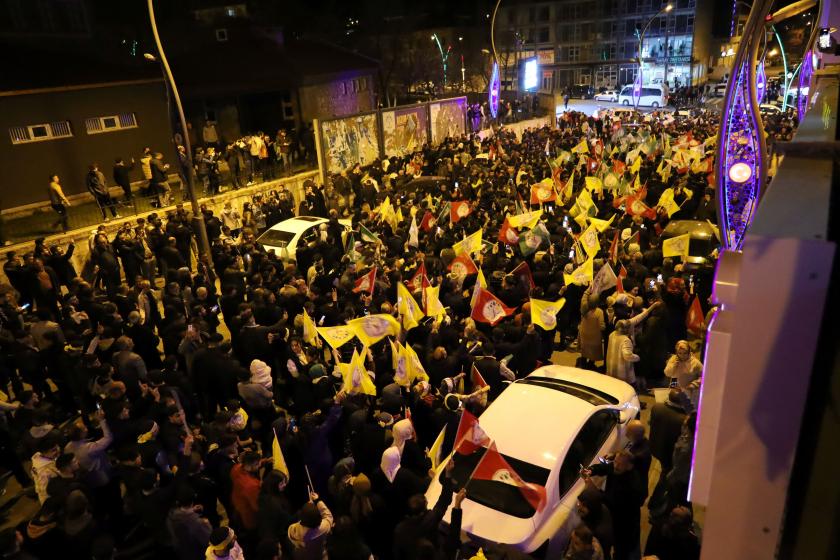
 Bülent Falakaoğlu
Bülent Falakaoğlu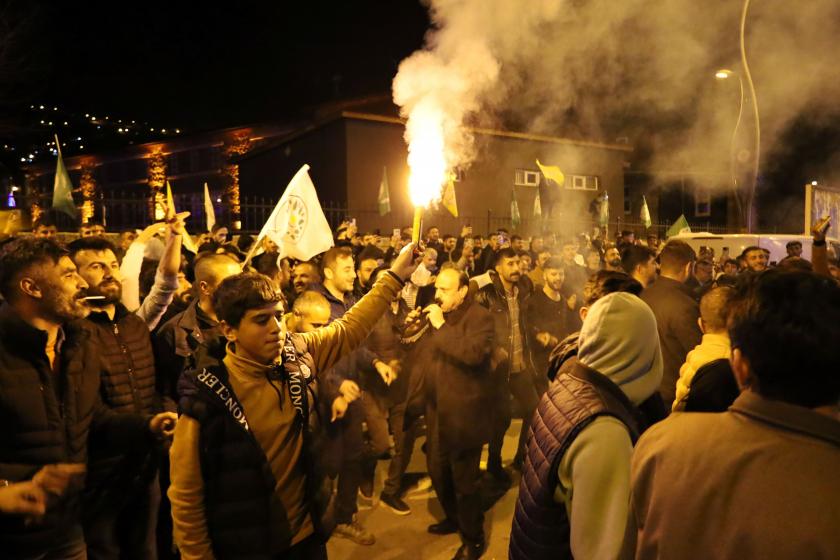
 Hakkı Özdal
Hakkı Özdal